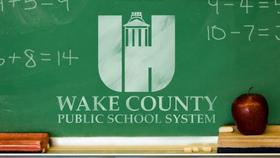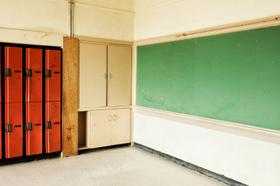Kentucky Schools: Jefferson County Schools Described As Academic Genocide
Struggling schools in Kentucky may face a double-whammy this year, with potential takeovers in sight even as the state’s commissioner of education makes “reckless” statements regarding the quality of education in some parts of his state. At the focus of the controversy is Jefferson County, one of the largest school districts in Kentucky and across the country. While some say the county is making positive progress in turning around its schools, others believe the progress is too slow to provide the necessary academic benefit to many of the youth in Jefferson County.
Comments Fuel Fire
The Courier-Journal reports that the commissioner of education for Kentucky, Dr. Terry Holliday, recently referred to the lack of progress in low-performing Jefferson County schools as “academic genocide.” He also likened the difference in education quality among schools in the county to “apartheid.” The comments drew fire from students, parents, teachers, and the county school board. Shortly after the comments were made, the Jefferson County school board issued a joint statement, which was quoted in the Courier-Journal as saying:
“Dr. Holliday accused JCPS of committing ‘academic genocide’ on Louisville students and compared JCPS ‘apartheid’. We emphatically reject this characterization of our district and the work of JCPS’s 16,000 employees. We are concerned this reckless language will distract from the real issue of increasing student achievement by starting yet another squabble among adults, about adults.”
Despite the protests of the school board, Holliday has stated that he chose the phrases he used carefully and with purpose. He hoped that the strong language would inspire community involvement to turn failing schools around. Holliday told the Courier-Journal in a separate article that he originally heard the term a few years ago when a North Carolina judge ruled that students in that state had a right to a sound, basic education.
This video reports on the issues in the Jefferson County Schools.
The Turnaround of Halifax County
Halifax County in North Carolina suffered from similar poor academic performance when Superior Court Judge Howard Manning sent a letter to the North Carolina Board of Education. In the letter, Judge Manning wrote that the students in the county were suffering from a breakdown within the education system in the state. Specifically, Judge Manning wrote, “This is academic genocide, and it must be stopped.”
The result of that letter, according to Holliday, was a full rally of the community around the education system in Halifax County. Forums were created, and the NAACP organized a march in the community called the “March against Academic Genocide.” Holliday is hoping for a similar result in his state, but thus far, the primary reaction to his comments appears to be outrage without action.
History of Failure
The Courier-Journal reports that for the past three years, 41 schools in Kentucky have been identified for overhauls because of their poor academic performance. Nearly half – a total of 18 schools – are located in Jefferson County. After a recent analysis of all 41 schools by the state, it was found that 16 of the Jefferson County schools were failing to make significant progress in improving their academic performance. Only two schools from the original 18, Fern Creek and Fairdale High Schools, appeared to be on the right track to educational improvement.
Holliday has warned that state management may be the next step for at least some of these 16 schools in Jefferson County. The state has already taken over seven of the original 41 schools on the list in other counties. Dr. Holliday has hinted that Jefferson may be the next county ripe for state takeover of some of its schools. Holliday added that a recent meeting with the Jefferson County school board did not bring the satisfying results he had hoped.
“It was, ‘well, you know we are meeting, we are working hard,” Holliday told the Courier-Journal. “I know they are working hard, but the kids aren’t learning. Some of these schools are in the bottom two percent of the state.”
Holliday also voiced concern about the difference in education quality between Jefferson County schools like DuPont Manual and Valley High School. Likening the difference to “apartheid,” Holliday stated the school district has created two very different education paths for students in the county. He stressed that Jefferson County needs to focus not just on “equity of opportunity” but on “equity of learning outcomes for all children.”
This video reports on issues in Jefferson County schools.
Getting Past the Rhetoric
However, before Jefferson County can move into practical plans for improvement, at least parts of the district will have to move past the rhetoric that has recently been slung. WFPL reports that student responses to Holliday’s comments have been mixed. Some students were unaware of the commissioner’s response, while others have said the comments are not relevant to what is going on in Jefferson County schools. However, some students were upset by the commissioner’s statements, saying it created a bigger problem for some schools in the county.
“It affects me because it gets around the world,” Lavonte Evans, a student at Moore High School, told WFPL. “They know that Louisville, Kentucky students are not learning the same things as other students as other states, and they are going to think low of us.”
Darianne Hudson told WFPL that teachers and staff at the Jefferson County schools are not focusing on test scores and school performance, so the students are unaware of their rankings. They believe the schools are doing their jobs in teaching students what they need to know to succeed in the future. However, not everyone agrees. If scores do not improve – and improve quickly – many of these schools may see state intervention by as early as next year.
Questions? Contact us on Facebook and Instagram. @publicschoolreview
#JeffersonCountySchools #AcademicGenocide #EducationInequality #SchoolPerformance #EducationCrisis















